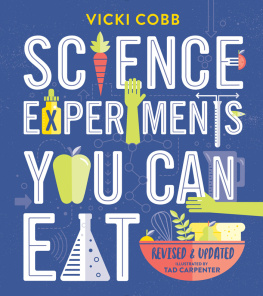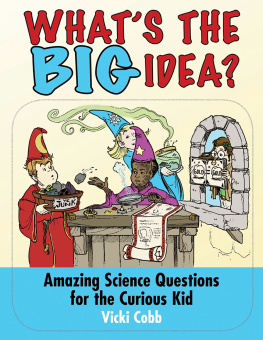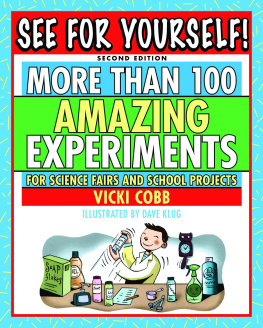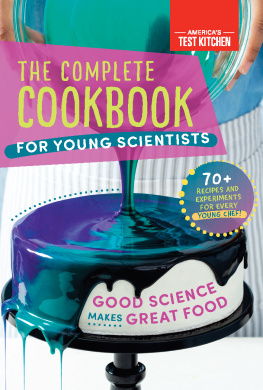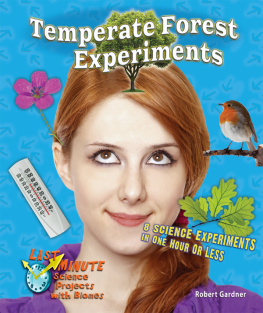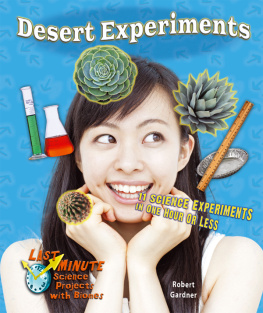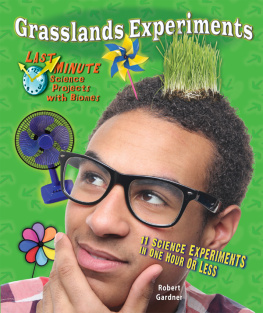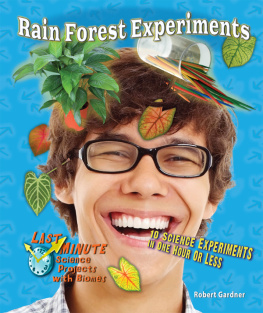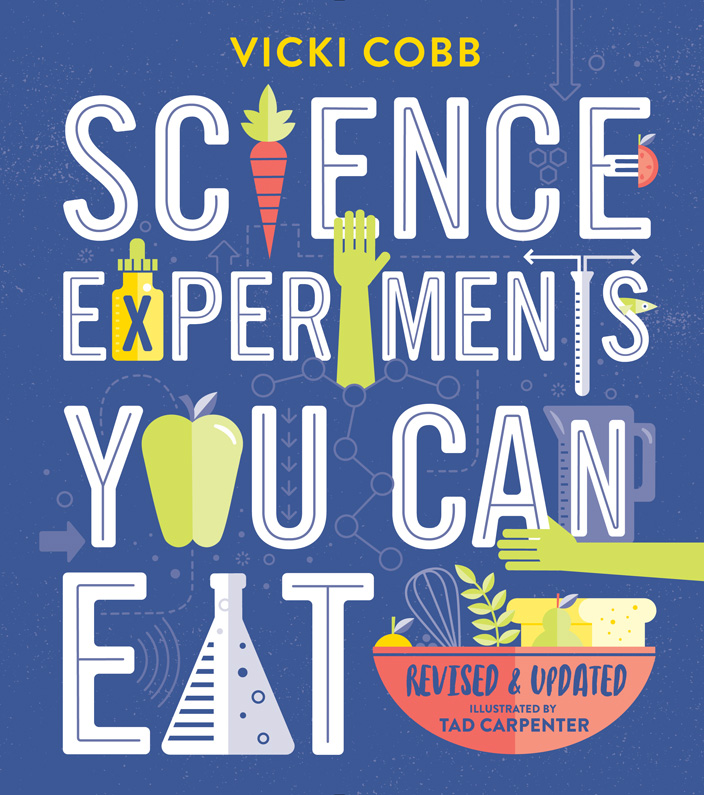TO THE MEMORY OF MY PARENTS:
Paula Wolf, for whom cooking was an act of love
Benjamin Wolf, the inspirational autodidact, who
mastered so many things by reading books
AND FOR MY GRANDCHILDREN:
Abby, Lexi, Ben, Jonny, and Jillian, who inherit the
legacy of three generations of lifelong learners
CONTENTS
Guide


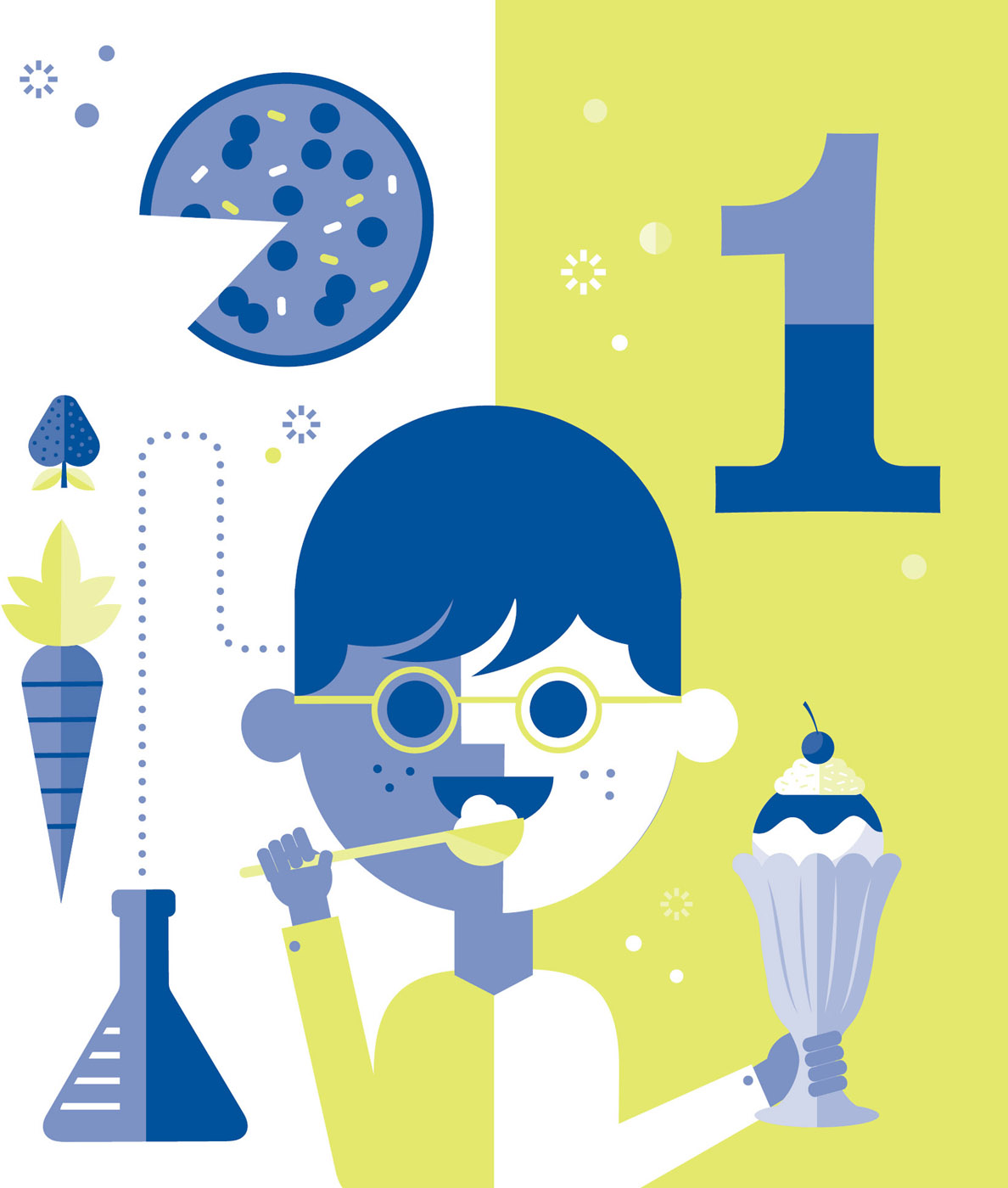
Chew on this. Once youve taken care of your need for food, what else are you hungry for? Personally, Im always hungry to learn, to share what Ive learned, and to create. Thats why Im a scientist and a writer. Maybe you are, too. The most exciting things to come out of science and creativity are those amazing aha momentsthe triumphant feeling that comes when you just know youve gotten it. This book is the result of one such moment. A friend phoned me to suggest that we collaborate on a cookbook for kids. We both had young families at the time and cooked every day. I remember thinking to myself, I dont want to write a cookbook. I want to write about science for kids. And then, the title Science Experiments You Can Eat popped into my head. There is nothing more amazing than having an idea pop into your headespecially when you know you can act on it. This aha moment gave me a vision for this book. I would use activities with food to help kids discover basic principles of science. I would create a tool so that you, too, could make discoveries and have many aha moments of your own.
Scientific discoveries have long influenced what shows up on your plate at mealtimes. Agronomy, the science of how food is grown, has helped farmers produce bigger and better crops. Methods of food preservation allow food storage for out-of-season consumption. Food additives and food packaging technologies, developed by scientists and engineers, maintain crispness, moistness, texture, flavor, visual appeal, and shelf life for thousands of different food products. There is virtually no chance of a famine in developed countries. Thats the good news.
The bad news is that the science of nutrition, which determines standards for a healthy diet, publishes new studies from time to time that tell us that a food we thought was good for us, or at least safe for consumption, can create health problems in the long run. Currently, 70 percent of the American diet is made up of processed foodfood that has been manufactured to give it a longer shelf life and to make it taste crave-able so you cant eat just one bite. Modern life is so hectic that many families dont sit down together every evening to share dinner and conversation. One result of these changes is an obesity epidemic among children. So, in this new edition of Science Experiments You Can Eat, I have added a chapter about some of the influences of science on foods we do eat. It will help you read between the lines of the Nutrition Facts labels so that you understand the importance of healthy choices in your own diet. In addition, I have included nutrition information throughout the other chapters of the book as you also learn basic physics, chemistry, and biology.
But mostly this book is designed to whet your appetite for science. I want it to nourish your curiosity and feed your mind. I want to make science not only digestible but a feast of discovery. This book is a banquet of ideas and processes and yes, some very tasty and some not-so-tasty results. (Although Ive done every experiment, to be honest, I havent eaten them all.) This is not gourmet dining, but it is food for thought.
Cookbooks give you precise directions for preparing food. Recipes are the result of many experiments in test kitchens that turn out predictable, delicious dishes. But this is a science book, not a cookbook. Food preparation produces a lot of changes in food. And change is what interests scientists.
There is no simpler activity for a cook than boiling water. Put water in a pot, put it over a burner on the stove, and wait for bubbles to form. But a scientist looks at this phenomenon and asks many questions: How hot does water have to be in order to boil? Does the temperature of water still rise after it starts boiling? If not, why not? Does water boil at a different temperature at sea level compared to in the mountains? If so, what does that tell us about this phenomenon? What is steam? How can steam be used to power, say, a locomotive? Scientific understanding of boiling water was one of the great breakthroughs in science and technology. The purpose of this book is to get you to think as a scientist. It will also help you as a cook. You will come to understand that science is not the mysterious process for eggheads its cracked up to be.
So when you do these experiments, keep an open mind. Youll get ideas. Youll start wondering. And, best of all, you may start asking questions that you can answer with experiments of your own. If that happens, you might just be on your way to one of those precious aha moments. So dont dismiss the power of your own brain. Good questions are how science makes progress. Heres what Einstein, the most amazing scientist of the twentieth century and the icon of genius, said about questions: If I had an hour to solve a problem and my life depended on the solution, I would spend the first fifty-five minutes determining the proper question to ask, for once I know the proper question, I could solve the problem in less than five minutes. And To raise new questions, new possibilities, to regard old problems from a new angle requires creative imagination and marks real advances in science.
The best way to get ideas is to do something. This book is a good place to begin. If you dont get the results you expect, it is not a failure. Nature doesnt lie. Your results depend on many variablesthe equipment and ingredients you used and the procedures you followed. Ive tried to give you directions in this book that will yield predictable results. But your kitchen is not my kitchen. If you dont get the expected results, try to think of what factors might have caused the difference. Redesign and repeat the procedure and see what happens. This is something scientists dothey publish their procedures so that others may repeat their experiments to make sure they all get the same data. In this way, science corrects itself. The body of knowledge that we call science is the result of countless experiments by many people. Imagine that! A community of people produced this knowledge and shared it with the world. Free! Science is the original wiki. Now you can join that community with experiments of your own.
Did you know scientists love to play? Theyve never forgotten what its like to be a kid. Play means that you suspend the rules and try stuff just for fun, just to see what happens. This book is your excuse to do just that.
In order to ask good questions, you need some background knowledge. So every chapter in this book has a short introduction that discusses the subject you will be investigating. Every experiment also has a short introduction that asks a question you can answer by doing the experiment. If you skip these, you might as well go use a cookbook. Before you begin any experiment, you need to know

